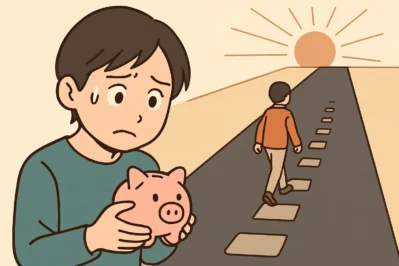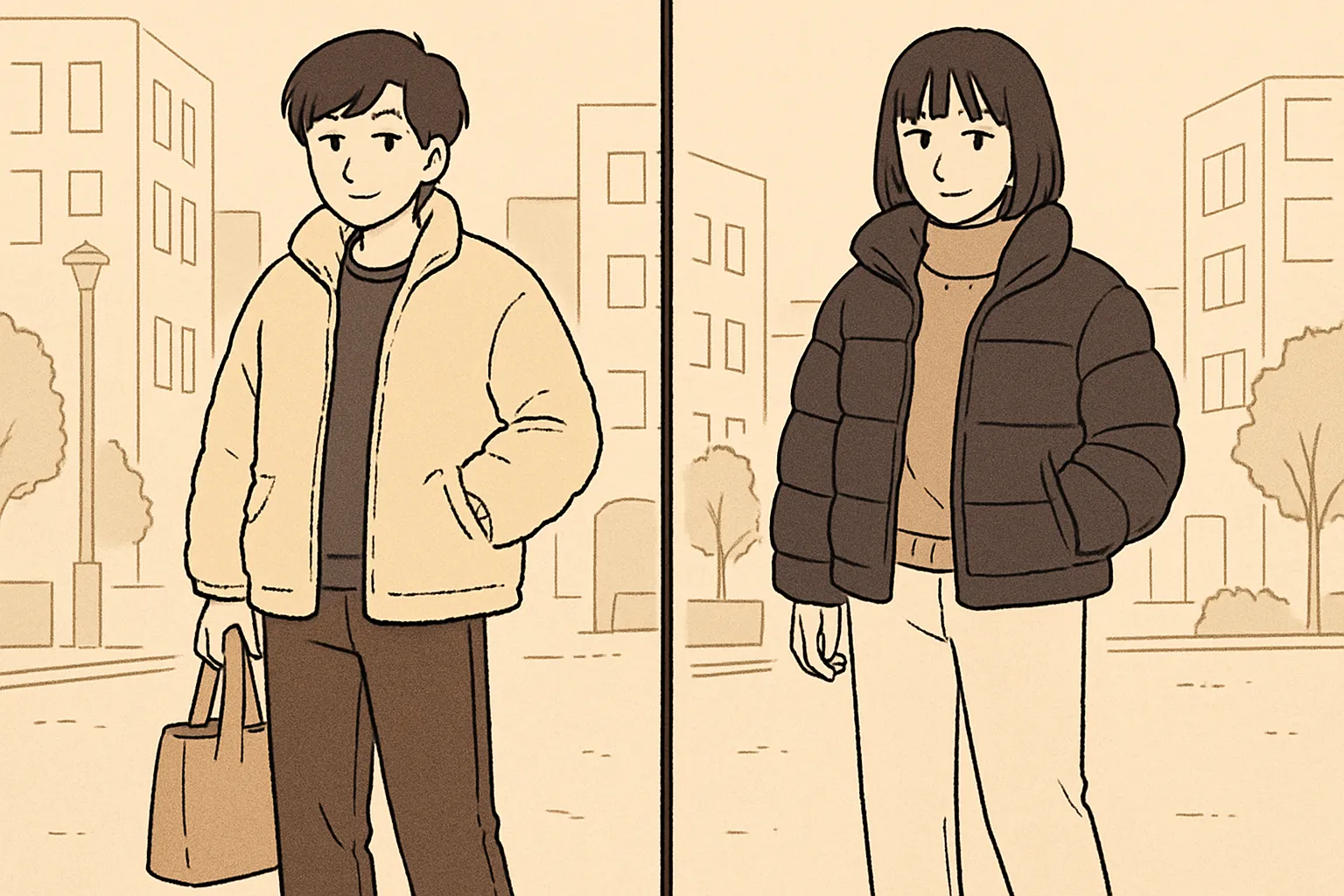“My Salary Isn’t Enough!” Talking Finance & Anxiety Like a Korean Millennial
Hello, everyone! Welcome to [Maeil Hangeul], the place to upgrade your Korean skills!
Today, we’re diving into a topic that’s on everyone’s mind: money. Specifically, we’ll learn how to talk about financial goals, the anxieties that come with them, and how to plan for the future in natural, modern Korean.
Lately in Korea, especially among the MZ generation (Millennials + Gen Z), there’s a huge boom in personal finance and investing. From the “FIRE movement” (Financial Independence, Retire Early) to everyone talking about stocks, you’ll hear these conversations everywhere. Learning today’s expressions will not only help you understand these discussions but also allow you to share your own thoughts and concerns on a much deeper level.
Let’s get started!
Core Expressions for Your Financial Vocabulary
Here are some essential phrases to help you navigate conversations about money and the future.
1. 재테크 (Jae-tech-eu)
- Romanization: Jae-tech-eu
- English Meaning: Financial technology; wealth management techniques; investment strategies.
- Detailed Explanation: This is a crucial modern Korean word, a portmanteau of 재물 (jaemul – wealth) and 테크놀로지 (technology). It’s an umbrella term that covers all activities aimed at growing your assets, including investing in stocks (주식), real estate (부동산), funds (펀드), and even strategic saving. It’s used far more commonly than the English word “investing” in casual conversation. If you’re talking about growing your money, 재테크 is the word to use.
2. 막막하다 (Mak-mak-ha-da)
- Romanization: Mak-mak-ha-da
- English Meaning: To feel hopeless; to be at a loss; to see no way forward.
- Detailed Explanation: This adjective perfectly captures the feeling of anxiety when facing a huge, uncertain challenge, like saving for a house or planning for retirement. It’s stronger than just being “worried” (걱정되다). 막막하다 implies that you look ahead and see a vast, empty, and daunting path, and you don’t know where to even begin. It’s a very common and expressive word used to describe feelings about the future, career, or finances.
3. N-만으로는 부족하다 (N-man-eu-ro-neun bu-jok-ha-da)
- Romanization: N-man-eu-ro-neun bu-jok-ha-da
- English Meaning: Just/only N is not enough.
- Detailed Explanation: This is a fantastic C1-level grammar pattern to express insufficiency. It attaches to a noun (N) to emphasize that this noun alone is not adequate for a certain purpose. It’s the perfect structure to explain why you’re feeling anxious or why you need to pursue other options.
- 월급 (salary) + 만으로는 부족하다 -> 월급만으로는 부족하다. (My salary alone is not enough.)
- 이 정보 (this information) + 만으로는 부족하다 -> 이 정보만으로는 부족하다. (Just this information isn’t enough.)
4. 차근차근 준비하다 (Cha-geun-cha-geun jun-bi-ha-da)
- Romanization: Cha-geun-cha-geun jun-bi-ha-da
- English Meaning: To prepare step-by-step; to prepare methodically and calmly.
- Detailed Explanation: This is the positive solution to feeling 막막하다. The adverb 차근차근 has a nuance of doing something in an orderly, calm, and deliberate manner, one step at a time. It’s often used to give advice or to describe one’s own careful approach to a complex problem. It’s a great way to talk about building a financial plan without getting overwhelmed.
Example Dialogue
Let’s see how these expressions are used in a real conversation between two friends working at an office.
A: 요즘 미래를 생각하면 가끔 너무 막막해.
(Yo-jeum mi-rae-reul saeng-gak-ha-myeon ga-kkeum neo-mu mak-mak-hae.)
Lately, when I think about the future, I sometimes feel so hopeless.
B: 왜? 무슨 일 있어?
(Wae? Mu-seun il iss-eo?)
Why? Is something wrong?
A: 아니… 그냥 월급만으로는 부족한 것 같아서. 집은 언제 사고, 노후 준비는 어떻게 하지?
(A-ni… geu-nyang wol-geum-man-eu-ro-neun bu-jok-han geot gat-a-seo. Jib-eun eon-je sa-go, no-hu jun-bi-neun eo-tteo-ke ha-ji?)
No… it’s just that I feel like my salary alone isn’t enough. When will I ever buy a house, and how do I prepare for retirement?
B: 나도 그래서 작년부터 재테크 공부 시작했잖아. 너무 조급해하지 말고 우리 같이 차근차근 준비해 보자.
(Na-do geu-rae-seo jak-nyeon-bu-teo jae-tech-eu gong-bu si-jak-haess-janh-a. Neo-mu jo-geub-hae-ha-ji mal-go u-ri gat-i cha-geun-cha-geun jun-bi-hae bo-ja.)
That’s why I started studying investment techniques last year. Let’s not be too hasty and try to prepare step-by-step together.
Culture Tip & Trend Deep Dive
In Korea today, the conversation you just read is incredibly common. The pressure to achieve financial stability is immense, leading to several key social trends you should know:
- 파이어족 (The FIRE Tribe): This is the Korean term for the “Financial Independence, Retire Early” movement. Many young Koreans are aggressively saving and investing with the goal of quitting the traditional corporate grind much earlier than previous generations.
- N잡러 (N-job-er): This refers to people who have ‘N’ number of jobs. It’s the new term for someone with multiple side-hustles. This is seen not just as a way to earn extra income, but as a necessary strategy for financial security.
- 영끌 (Yeong-kkeul) & 빚투 (Bit-tu): These are two slightly more extreme slang terms. 영끌 is short for “영혼까지 끌어모아” (to gather up even your soul), meaning to pull together every possible resource to make a large investment, usually in real estate. 빚투 is short for “빚내서 투자” (investing with debt), which highlights the high-risk, high-return mentality that has become more prevalent.
Understanding these terms will show you that today’s vocabulary isn’t just about language; it’s a window into the core economic anxieties and aspirations of modern Korean society.
Wrap-up & Practice
Great job today! We learned four key expressions to discuss the complex topics of financial planning and anxiety: 재테크, 막막하다, -만으로는 부족하다, and 차근차근 준비하다. These will help you have more meaningful and relevant conversations with your Korean friends.
Now, let’s put them to the test!
- Fill in the Blank:
미래가 걱정될 때도 있지만, ( ______________ ) 계획을 세우면 괜찮을 거예요.
(Even when I’m worried about the future, if I make a plan (___________), it will be okay.) -
Sentence Building:
Using the grammar pattern N-만으로는 부족하다, write a short sentence about why you are studying Korean. (e.g., “Watching dramas with subtitles alone is not enough, so I am studying Korean.”)
Leave your answers in the comments below using the expressions you learned today! We’d love to see how you use them. Keep up the great work






